A trading broker earns money from commissions and fees charged on each transaction. They make money from spreads, rebates, partnerships, and currency conversion fees.
Trading brokers act as intermediaries between investors and financial markets, facilitating the buying and selling of various assets, including stocks, bonds, commodities, and currencies.
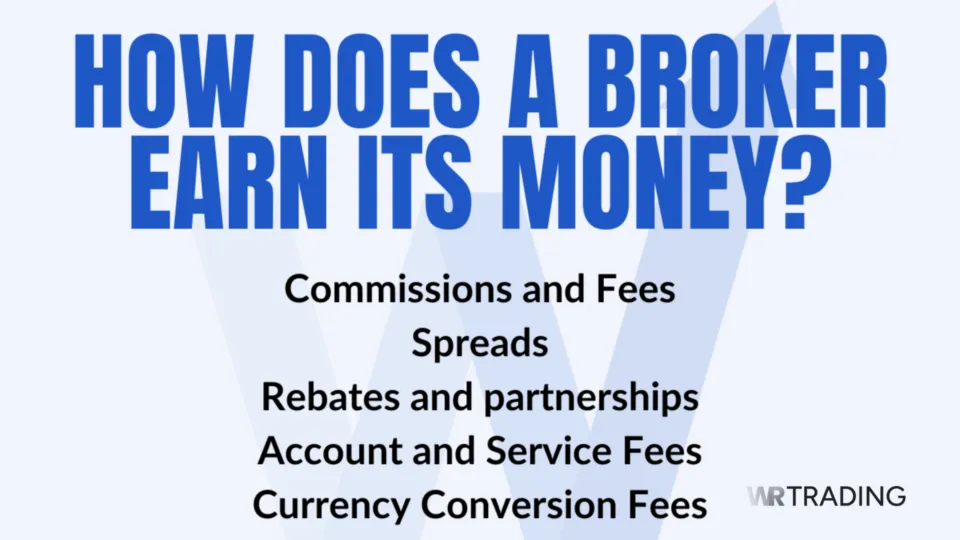
That’s How Trading Brokers Make Money
How Trading Brokers Make Money:
These mechanisms allow trading brokers to maintain profitability while providing services to traders. A trading broker earns its money through various revenue streams:
- Commissions and Fees
- Spreads
- Rebates and Partnerships
- Account and Service Fees
- Currency Conversion Fees
1. Commissions and Fees
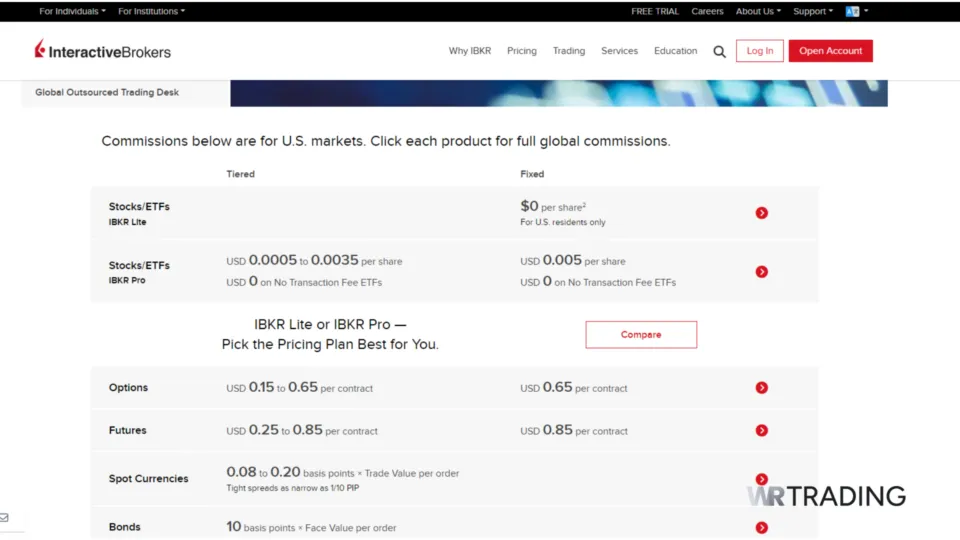
One of the most common ways trading brokers earn money is through commissions and fees charged on each transaction. Whenever a trader buys or sells an asset, the broker takes a percentage of the transaction value as a commission.
This fee can be a flat rate or a percentage of the trade size. For instance, some brokers might charge $5 per trade, while others might take a 0.1% commission on the total value of the transaction.
To illustrate, the average commission for online trades in the U.S. ranges from $5 to $30 per trade for stocks and ETFs, with options trades often incurring additional fees of around $0.65 to $1.00 per contract.
The commission rates can vary depending on the type of broker, the financial instruments being traded, and the volume of trades conducted by the client. Full-service brokers, who offer personalised advice and additional services, generally charge higher fees compared to discount brokers, who provide minimal service at a lower cost.
2. Spreads
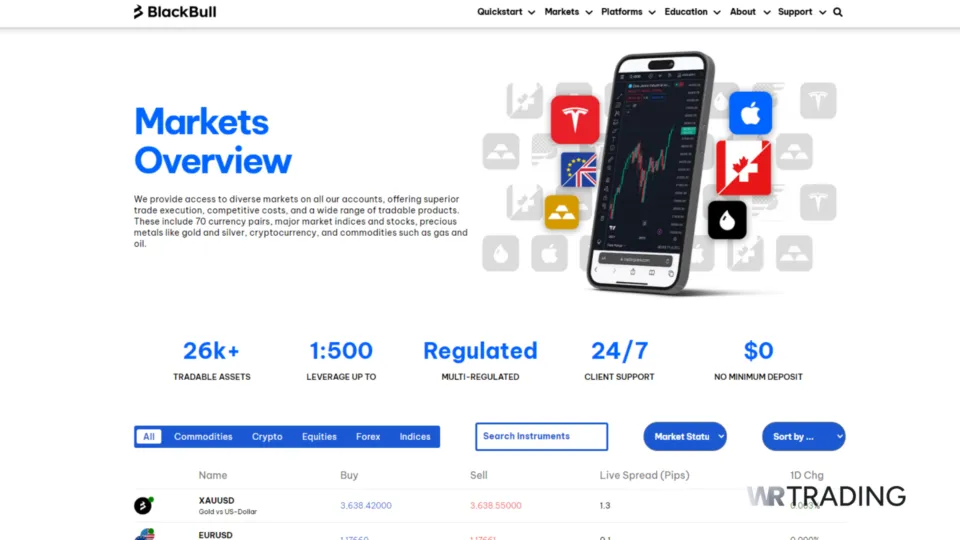
Another significant way brokers make money is through the spread, which is the difference between the buy (ask) and sell (bid) prices of an asset. The spread represents a form of indirect commission that traders pay without realising it.
For example, if the bid price for a stock is $100 and the ask price is $100.10, the spread is $0.10. When a trader buys at the asking price and sells at the bid price, they immediately incur a slight loss equivalent to the spread.
3. Rebates and Partnerships
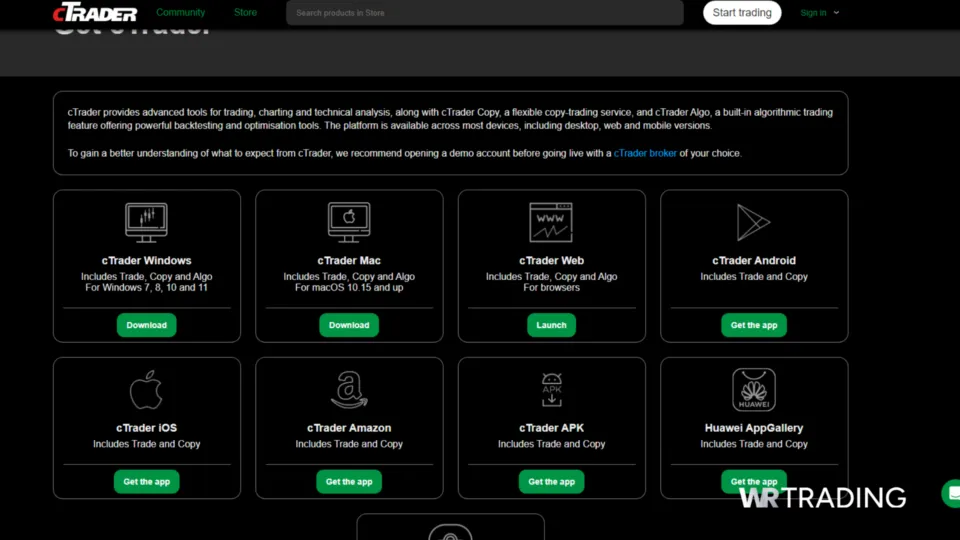
Some brokers establish partnerships with financial institutions, technology providers, or other businesses, earning rebates or referral fees in the process. For example, a broker might receive a rebate from a mutual fund company for recommending their funds to clients. Similarly, brokers might partner with software companies to offer specialised trading tools, earning a commission on each sale or subscription.
4. Account and Service Fees
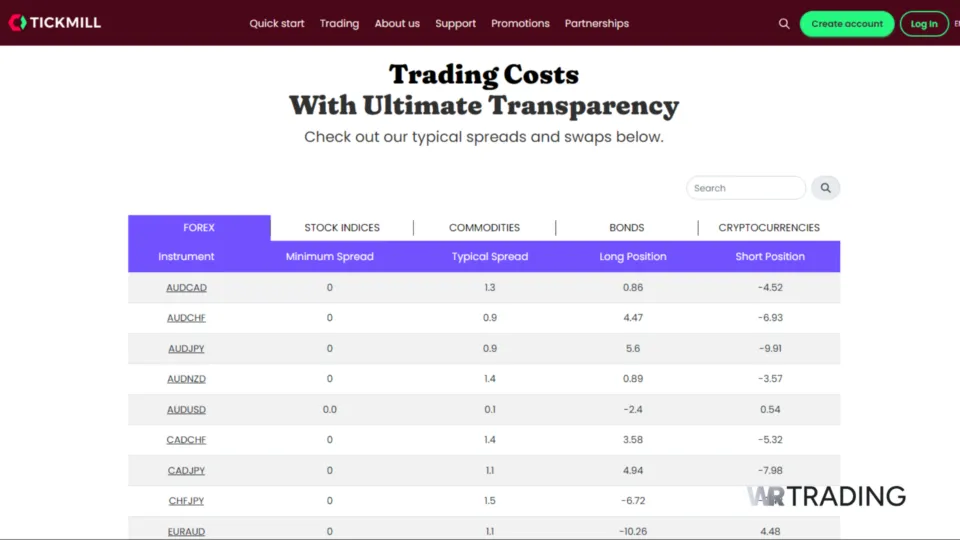
Many brokers offer subscription services or premium features to enhance the trading experience and generate additional revenue streams.
These services can include access to advanced trading platforms, real-time data feeds, premium research, and educational resources. Traders who want a competitive edge may subscribe to these services for a monthly or annual fee. Brokers often provide tiered service levels, with higher tiers offering more features at a higher cost.
Usually, a basic account might include limited charting tools and delayed market data, while a premium account offers real-time data, advanced analytics, and personalised customer support. These premium features cater to more experienced traders willing to pay extra for enhanced tools.
5. Currency Conversion Fees
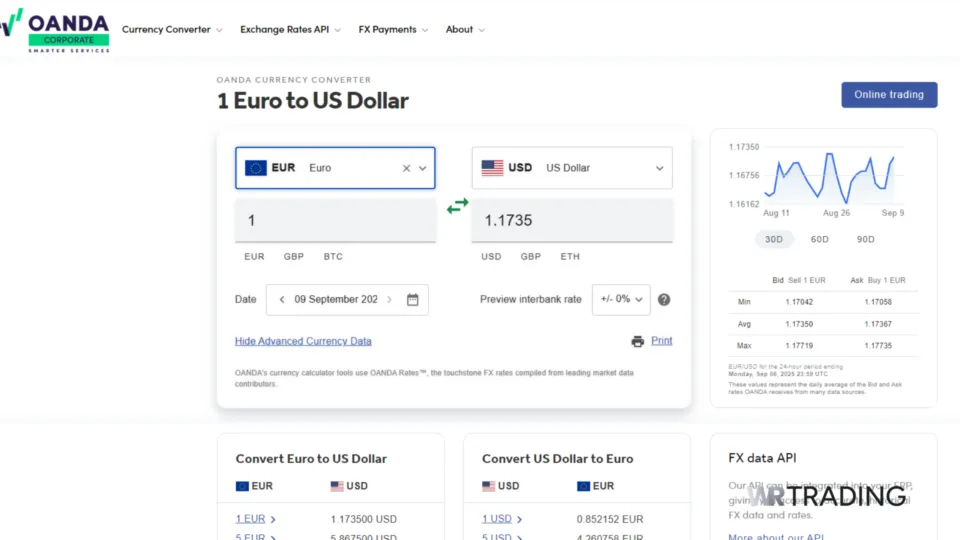
For traders dealing with international markets, currency conversion fees can be another source of revenue for brokers. When a trader buys or sells assets in a foreign currency, the broker handles the currency conversion and charges a fee for this service. These fees can be a percentage of the transaction amount or a flat rate, depending on the broker’s policy.
Currency conversion fees can significantly impact the profitability of trades in foreign markets, especially for frequent traders or those dealing with large amounts of capital.
Brokers may offer more favourable conversion rates to high-volume clients, but the fees still represent a notable income stream for the broker.
Are Brokers Always Profitable?
No, brokers are not always profitable. This is because market conditions heavily influence their profitability. During periods of high volatility and active trading, brokers benefit from increased trading volumes, which translate into higher revenues from spreads and commissions. In these conditions, the constant flow of transactions allows brokers to generate steady income, making it easier to maintain profitability.
However, when markets are less volatile, trading activity often slows down. During calmer market periods in 2021, daily trading volumes on major exchanges like the NYSE and NASDAQ fell by over 20% compared to 2020 levels. This decrease in volume reduces the number of transactions and, consequently, the broker’s potential earnings.
In such periods, maintaining profitability becomes more challenging, and brokers must rely on other revenue streams to cover their operational costs.
Can A Broker Earn Money On Your Losses?
Yes, certain types of brokers can earn money from a client’s losses, particularly if they operate as market makers. Market makers provide liquidity to the market by buying and selling securities from their inventory, effectively taking the opposite side of a client’s trade. When a client loses money on a trade, the broker, acting as the market maker, may profit from that loss.
Typically, brokers generate income through commissions, spreads, and various fees, regardless of whether a client is making or losing money.
However, to address these concerns, regulators closely monitor the activities of market makers to ensure that they operate fairly and transparently. Brokers are required to disclose their business models and any potential conflicts of interest to clients. Clients should be aware of these dynamics and consider them when choosing a broker, particularly if they are trading with a market maker.
How Neo Brokers Without Commissions Earn Money?
Neo brokers, known as zero-commission brokers, have disrupted the traditional brokerage industry by offering commission-free trading. Despite not charging commissions, these brokers have developed alternative revenue streams to sustain their business models.
Here are some of the key ways neo brokers without commissions earn money:
- Payment For Order Flow (PFOF)
- Interest On Cash Balances
- Premium Services
- Securities Lending
Payment For Order Flow (PFOF)
Payment for Order Flow (PFOF) involves selling their clients’ trade orders to market makers or high-frequency trading firms, who then execute the trades.
PFOF allows neo brokers to offer commission-free trading while still earning revenue, although it has sparked debate over potential conflicts of interest regarding trade execution quality.
Robinhood has reportedly earned $618 million in the first quarter of 2024 from PFOF, making up a significant portion of its total revenue. This trend is not isolated to Robinhood, as other neo-brokers like Webull and e*TRADE rely heavily on PFOF. In fact, according to a report by Bloomberg, over 80% of Robinhood’s revenue in the first quarter of 2021 came from PFOF.
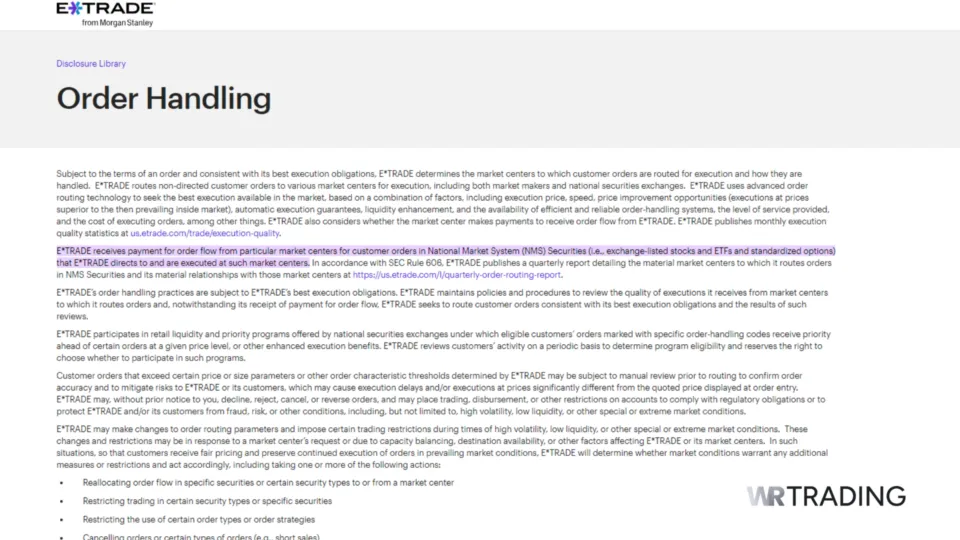
Interest On Cash Balances
Neo brokers earn money by holding clients’ uninvested cash balances in their accounts. The brokers invest this cash in low-risk financial instruments, such as government bonds or money market funds, and keep the interest earned.
Given the large number of clients and the aggregate amount of uninvested cash, this can be a significant source of income for neo brokers. However, the interest rates offered to clients on these cash balances are often lower than the rates the brokers earn, allowing them to pocket the difference.
Premium Services
While basic trading is commission-free, we found that many neo brokers offer premium services and features for a fee. These might include access to advanced trading platforms, real-time data, in-depth research, margin trading, or personalised investment advice.
Clients who require more tools or support beyond the free tier can opt to pay for additional services, generating an extra revenue stream for the broker.
Securities Lending
Securities lending is another source of income for neo brokers. Neo brokers lend out the securities held in clients’ accounts to other market participants, such as hedge funds or other institutional investors, who want to short-sell the stocks. In return, the broker earns a lending fee.
While clients generally retain ownership of the securities, they may not receive any income generated from the lending, as the broker keeps the fee.
Find Cheap Brokers With WR Trading:
For low-cost brokers, we prioritise options that offer tight spreads, low commissions, and excellent trade execution speeds. Our team of experts evaluated several brokers noted those that stand out in terms of quality and, most importantly, affordability.
Here’s a quick overview of the best brokers according to our research:
Broker:
Assets:
Features:
Account:
1. BlackBull
Forex, Indices, Commodities, Shares, Cryptocurrencies, Metals, ETFs
- No Minimum Deposit
- Spreads from 0.0 Pips
- 26,000+ Markets
- Leverage up to 1:500
- Low Commission from 2$/1 Lot
- High liquidity and fast execution
- TradingView, MT4/5, cTrader, Invest Account
- New Zealand regulated
2. FP Markets

Forex, Indices, Commodities, Shares, Cryptocurrencies, Bonds, Metals, ETFs
- 5x regulated broker
- Spreads from 0.0 Pips
- More than 10,000 markets
- Leverage up to 1:500
- Low Commission from 3$/1 Lot
- High liquidity and fast execution
- TradingView, MT4/5, cTrader, IRRES
3. RoboForex
Forex, Stocks, Indices, Commodities, Cryptocurrencies, ETFs, Metals, Futures, Energies
- Different ECN Accounts
- Spreads from 0.0 Pips
- Copy Trading available
- Leverage up to 1:2000
- Low Commission from 6$/1 Lot
- High liquidity and fast execution
- MT4/MT5/RTrader/CopyFX
Conclusion
While brokers have multiple revenue streams, their profitability is not guaranteed. They must carefully manage their operations, adapt to changing market conditions, and go through competitive pressures to sustain their profitability.
Understanding these diverse income sources provides insight into how brokers maintain profitability while facilitating trading activities. With this information, you can decide which trading platform perfectly aligns with your trading strategy and cost expectations.
Frequently Asked Questions (FAQ)
Do Brokers Charge For Currency Conversions?
Yes, brokers can charge fees for currency conversions when a trade involves currencies different from the account’s base currency. This is another way brokers generate revenue, particularly in the forex trading market.
Can A Broker Earn Money If A Trader Loses?
Yes, in some cases, brokers can earn money when a trader loses, particularly with market maker brokers who take the opposite side of a trade. However, most brokers operate on a different model, where their profit comes from spreads and commissions, regardless of the trader’s success.
Do All Brokers Charge Commissions On Trades?
No, not all brokers charge commissions. Some brokers, especially those offering commission-free trading, make money through other means, such as spreads or selling order flow to market makers. This allows them to provide zero-commission trading while still generating revenue.


